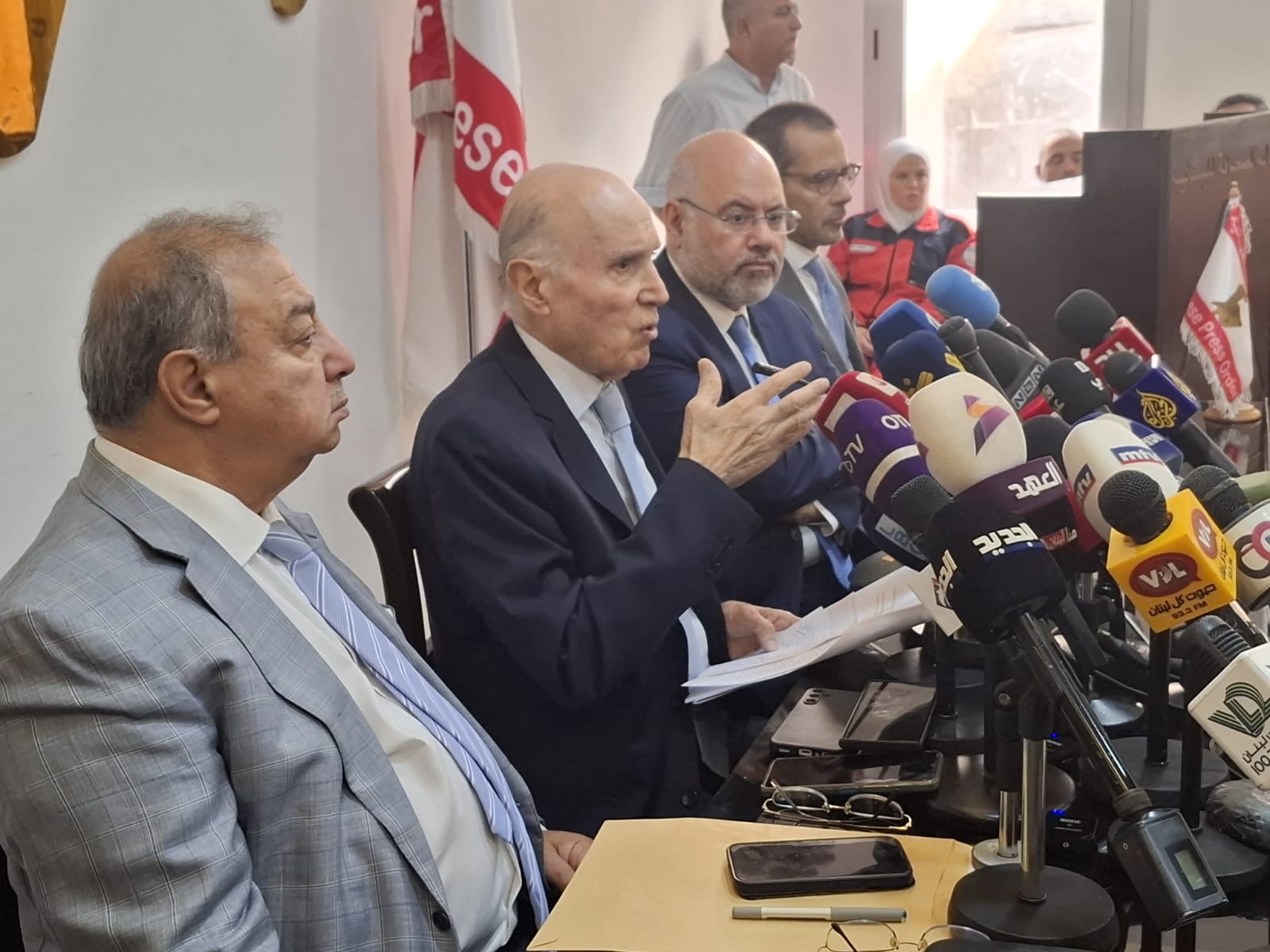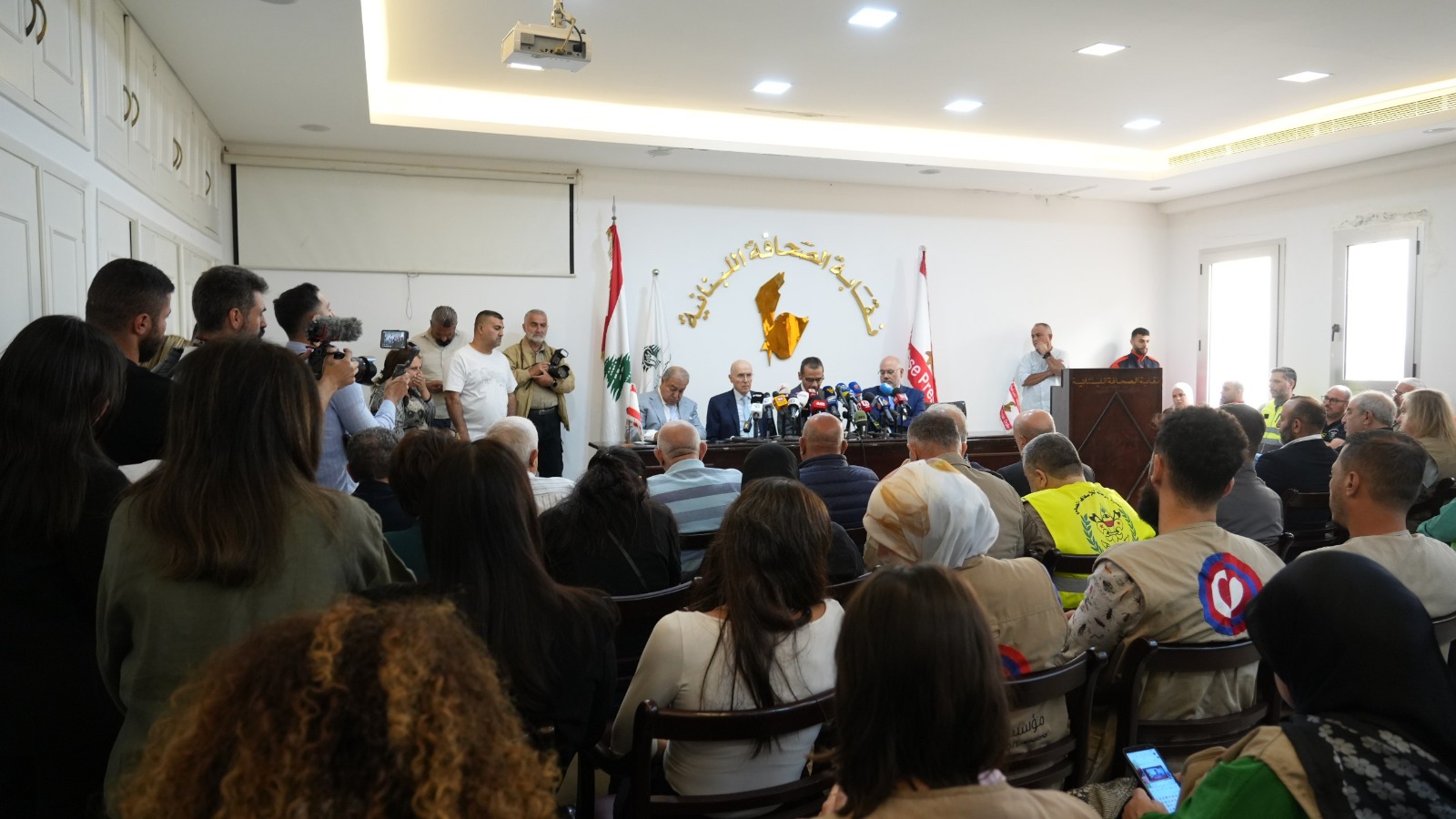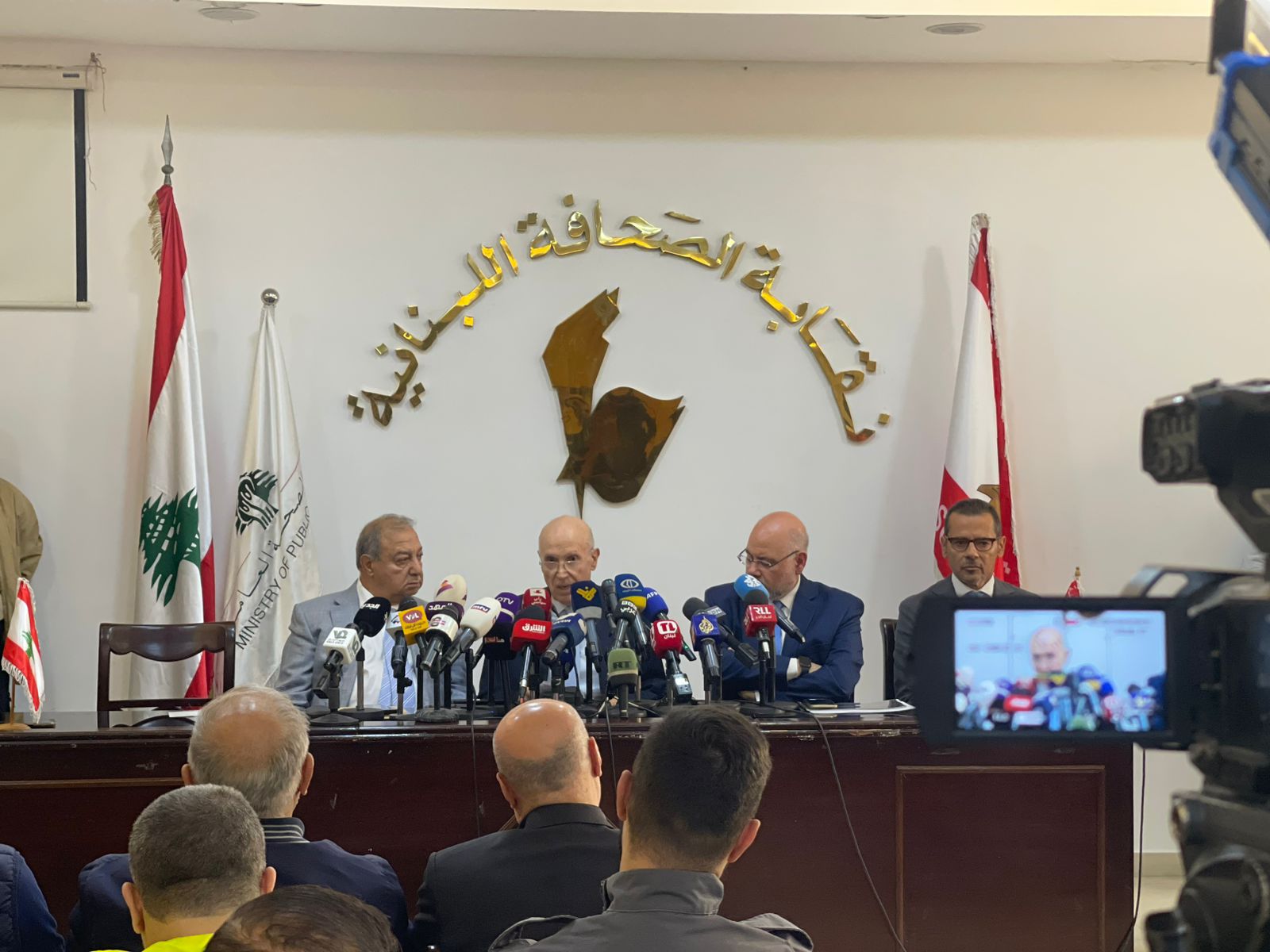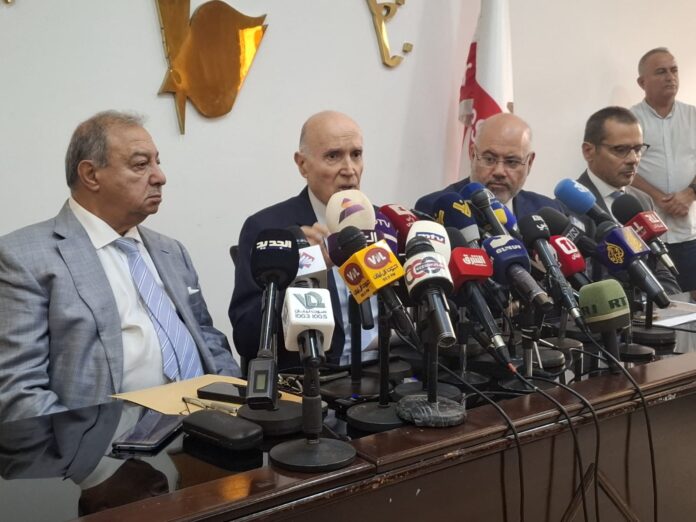Minister Al-Abyad: The media sector performs the same duty as healthcare workers.
Alama: We call on ambassadors in Lebanon to review the report documenting the assaults and to turn to international courts to hold Israel accountable.
Mohanna: We reject the systematic destruction of the health and humanitarian sectors and demand pressure to ensure respect for international humanitarian law.
Amid the systematic Israeli attacks on the healthcare and emergency sectors in Lebanon, the Lebanese NGOs Network and the Ministry of Public Health held a joint press conference at the Press Syndicate, attended by Dr. Firas Al-Abyad, the caretaker Minister of Health, MP Fadi Alama representing the Parliamentary Health Committee, and Dr. Kamel Mohanna, General Coordinator of the Lebanese NGOs Network. The event was also attended by Press Syndicate President Aouni Al-Kaaki, alongside several representatives from media outlets, healthcare, and emergency organizations.
 The conference began with a moment of silence to honor the martyrs of Lebanon from both the healthcare and media sectors. Minister Al-Abyad expressed his sorrow over Israel’s targeting of media workers, citing a recent incident in Hasbaya. He stressed that “the media sector plays a role no less important than that of healthcare workers,” noting that 13 media martyrs have fallen in Lebanon, including those in direct attacks.
The conference began with a moment of silence to honor the martyrs of Lebanon from both the healthcare and media sectors. Minister Al-Abyad expressed his sorrow over Israel’s targeting of media workers, citing a recent incident in Hasbaya. He stressed that “the media sector plays a role no less important than that of healthcare workers,” noting that 13 media martyrs have fallen in Lebanon, including those in direct attacks.
 Minister Al-Abyad presented a documented report detailing the Israeli assaults on the healthcare sector, explaining that “this document aims to record the violations against healthcare workers and facilities, representing a blatant breach of international humanitarian law and the Geneva Conventions.” He emphasized the need to hold the perpetrators of these violations accountable and recognize the efforts of healthcare and emergency workers who have sacrificed their lives in humanitarian duty.
Minister Al-Abyad presented a documented report detailing the Israeli assaults on the healthcare sector, explaining that “this document aims to record the violations against healthcare workers and facilities, representing a blatant breach of international humanitarian law and the Geneva Conventions.” He emphasized the need to hold the perpetrators of these violations accountable and recognize the efforts of healthcare and emergency workers who have sacrificed their lives in humanitarian duty.
MP Fadi Alama underscored that “the healthcare sector will not be broken despite the enemy’s targeting of it,” pointing out Israel’s violations of humanitarian laws by directly targeting journalists and workers in both the healthcare and emergency sectors. He called for inviting ambassadors accredited to Lebanon to review the documented report presented by the Minister of Health and to take the matter to international courts to demand accountability for those responsible for these crimes.
 Dr. Kamel Mohanna highlighted the scale of the devastation affecting the healthcare sector, saying: “We are facing a complete genocide as if the world has no humanitarian laws.” He commended the healthcare workers in institutions and hospitals for their sacrifices and the Ministry of Health’s pioneering role since the crisis’s onset. Mohanna urged for serious action at international forums, stressing that the healthcare sector needs more significant support, especially with the approach of winter and the additional health challenges it may bring.
Dr. Kamel Mohanna highlighted the scale of the devastation affecting the healthcare sector, saying: “We are facing a complete genocide as if the world has no humanitarian laws.” He commended the healthcare workers in institutions and hospitals for their sacrifices and the Ministry of Health’s pioneering role since the crisis’s onset. Mohanna urged for serious action at international forums, stressing that the healthcare sector needs more significant support, especially with the approach of winter and the additional health challenges it may bring.
He added: “Today, we gather not just as defenders of justice and human rights, but as individuals who have dedicated their lives to serving others, believing in values of humanity that transcend religious, ethnic, and national boundaries. Therefore, according to international humanitarian law, let us demand justice for those who courageously stand on the front lines, risking their lives to save others. These healthcare workers and paramedics make limitless sacrifices to preserve life. Yet, they find themselves targeted by the Israeli army, which has destroyed their hospitals and set ambushes for their ambulances, threatening their lives simply for doing their duty. This is not just an attack on individuals wearing uniforms protected by international laws and conventions, but also a violation of human dignity.”
The Lebanese NGOs Network and the Ministry of Health renewed their call for intensified efforts to protect Lebanon’s healthcare and emergency sectors, appreciating the resilience of workers in these sectors despite the challenges they face.


 Creative Commons Attribution 4.0 International license
Creative Commons Attribution 4.0 International license